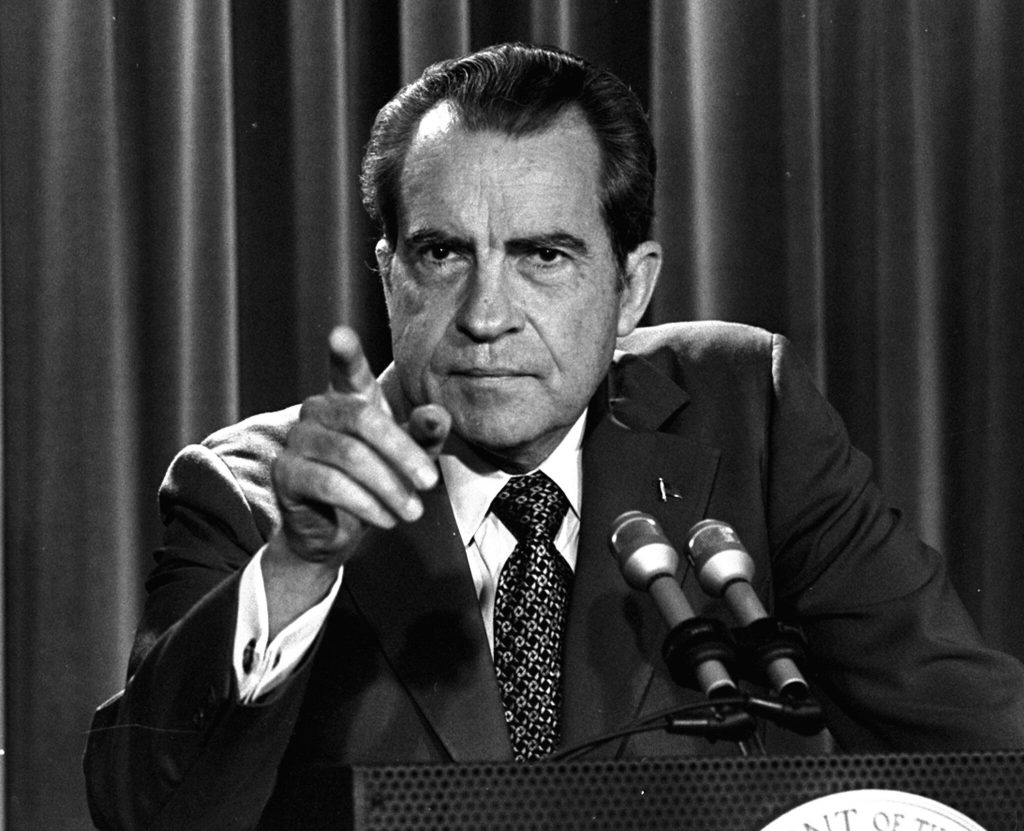
Does CBD Treat Depression?
Cannabidiol – often abbreviated as CBD – is a truly remarkable, powerful molecule of the cannabis plant that has dozens of potential health benefits in

The cannabis compound cannabidiol – often abbreviated as merely “CBD” — has an arguably unrivaled legal history in terms of its complexity.
Since 2018, CBD is now fully legal across the United States – provided, critically, that it meets certain technical criteria. But it wasn’t always that way.
Let’s take a brief journey through time to understand how we got to the present-day scenario of fully legal CBD.
President Richard Nixon assumed office at the height of the Vietnam War and the Civil Rights movement. He had a political mess on his hands.
One way to combat his political opponents (broadly speaking, baby boomer “hippies” and minority and anti-war activists), in his estimation, was to stigmatize and illegalize their perceived lifestyles.
Enter the War on Drugs and the 1971 Controlled Substances Act, the most significant anti-drug legislation in American history.
Cannabis, which was then as now the most widely used illicit substance, was target #1 of the new legislation. That included, until very recently, the isolated cannabis compound CBD.
The American Enterprise Institute explains:
“President Richard Nixon’s declared what has been the US government’s longest and costliest war — the epic failure known as the War on Drugs… Nixon identified drug abuse as ‘public enemy number one’… and launched a[n]… ‘all out offensive’ on Americans that continues to today.”

As a result, US incarceration rates, driven by drug arrests, exploded. The so-called “prison-industrial complex” was born.

To the surprise of many, US Congress legalized CBD approximately 4 years ago via the US Farm Bill of 2018. In a nutshell, the legislation legalized the production, sale, transport, and possession of cannabis products termed “hemp” – including CBD and a special type of THC called “Delta-8.”

The most important caveat in this bill, per section 10113, is that, to meet the legal definition of “hemp,” such products can contain no more than 0.3 percent THC.
Any cannabis products – whether flower, oil, or edibles – that contain more than 0.3% Delta-9 THC are still federally illegal. That means that their possession or sale on federal property, or their transportation across state lines, is still punishable under the law.
As we’ll explore, “hemp” and “marijuana,” although they both refer to byproducts of the cannabis crop, are two distinct legal categories.
Due to the highly bureaucratized legal labyrinth that governs cannabis in the United States, there’s a ton of confusion out there about the crop’s legal status and all of its constituent components, like the cannabinoids CBD and THC.
“Marijuana” – which the 1971 Controlled Substances Act (CSA) legally defined as “the cannabis plant, including seeds and its derivative products, with a delta-9 tetrahydrocannabinol (THC) concentration over 0.3 percent on a dry-weight basis” — remains federally illegal. And it’s not just illegal, but very illegal. Despite cannabis’ numerous proven potential healthcare applications, it nonetheless remains, at the federal level, a Schedule I substance.
Under Schedule 1, that means, according to the government, that it “has a high potential for abuse, no currently accepted medical use in treatment in the United States, and a lack of accepted safety for use under medical supervision.”
Talk about policy not matching reality!
Here are a few key rebuttals to make the next time you’re debating legalization with prohibition proponents:
The shifting cultural attitude in favor of normalizing cannabis, and changing state laws, might lead you to assume that cannabis arrests are a relic of the past.
That’s not true. The Drug War, particularly as it relates to cannabis, still rages. According to the Drug Policy Alliance, cannabis still accounts for a plurality of drug arrests each year – roughly the same as those for heroin and cocaine combined.

The federal bureaucracy in charge of executing drug enforcement policy was built over decades. Cannabis enforcement has always been a mainstay of their operations.
The total Drug Enforcement Administration (DEA) – the federal agency tasked with waging the drug war as its primary mission – had funding of $3,113.3 million in 2021. That represented a 15% increase in funding from 2020, with much of it going toward enforcement of cannabis policy.
Both sides of the political spectrum at the federal level have, at times, paid lip service to full cannabis decriminalization and/or legalization, but so far their rhetoric hasn’t matched their legislative or executive actions.
As just one example, while running for office, then-candidate Biden pledged in October 2020 to prioritize decriminalizing cannabis as part of criminal justice reform, recognizing the disproportionate toll that the drug war has taken on marginalized communities. He has thus far not delivered on that promise.
The bottom line is that the federal war on cannabis isn’t going anywhere anytime soon – primarily because there are simply too many entrenched interests (police and prison guard unions, influential federal law enforcement agencies, alcohol manufacturers, and private prison corporations, just to name a few) who want to see cannabis remain a Schedule I substance.
Lots of powerful interest groups generate lots of money and lots of year-on-year budget increases keeping cannabis illegal. And, unfortunately, in our current political configuration, they wield enormous power to sway lawmakers.
The history of cannabis legalization is unfolding right now.
CBD legalization was an important start, but there’s more work to be done to get the whole cannabis plant, not just CBD, off of the federal schedule and into the regulatory hands of public health groups.
Here are a few ways to promote cannabis legalization in your area by becoming a “citizen lobbyist“:
We follow the complicated legal and historical developments regarding CBD – and all of the cannabis plant’s many compounds.
Contact us to learn more about the latest regarding CBD’s legality in Georgia and throughout the United States.

Cannabidiol – often abbreviated as CBD – is a truly remarkable, powerful molecule of the cannabis plant that has dozens of potential health benefits in

Alzheimer’s disease (AD) – along with a host of other neurodegenerative conditions that impact brain health – is nothing short of a public health catastrophe

To date, CBD (“cannabidiol” in long-form) is the single most potent cannabis compound that researchers have isolated to research its potential health benefits. Here, we
Made in Atlanta. © FOOD AND DRUG ADMINISTRATION (FDA) DISCLOSURE These statements have not been evaluated by the Food and Drug Administration. These products are not intended to diagnose, treat, cure, or prevent any disease.